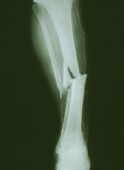
FRIDAY, Sept. 30 (HealthDay News) — People taking oral steroids double their risk for severe vitamin D deficiency, which can lead to bone disease or muscle weakness, a new study indicates.
Researchers at Albert Einstein College of Medicine of Yeshiva University, in New York City, said steroids might increase levels of an enzyme that inactivates the vitamin, resulting in osteomalacia (softening of the bones), rickets (softening of bones in children) or clinical myopathy (muscle weakness). They recommended that physicians monitor vitamin D levels of patients being treated with oral steroids.
“When doctors write that prescription for steroids and they’re sending the patients for lab tests, they should also get the vitamin D level measured,” study author Dr. Amy Skversky, an assistant professor of pediatrics at Einstein and Montefiore Medical Center, in New York City, said in a news release from the university.
In conducting the study, published in the Sept. 28 online edition of the Journal of Clinical Endocrinology and Metabolism, researchers examined information compiled on more than 31,000 participants in the National Health and Nutrition Examination Survey 2001-2006.
Roughly 1 percent of those examined reported using oral steroids in the past month. Of those taking the drugs, 11 percent had severely low levels of vitamin D (defined as levels below 10 nanograms per milliliter of blood). Meanwhile, the study revealed that only 5 percent of those not taking the steroid had this vitamin deficiency.
The researchers noted the risk was most evident among participants under 18. These children and teens were 14 times more likely to have a severe vitamin D deficiency.
The study authors said that their findings did not apply to those using inhaled steroids.
More information
The U.S. National Institutes of Health provides more information on vitamin D deficiency.

